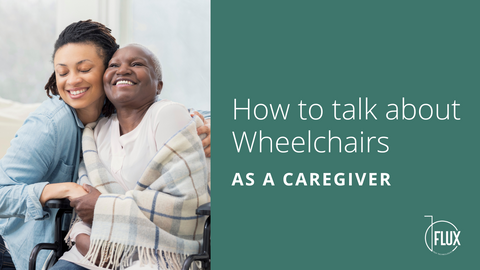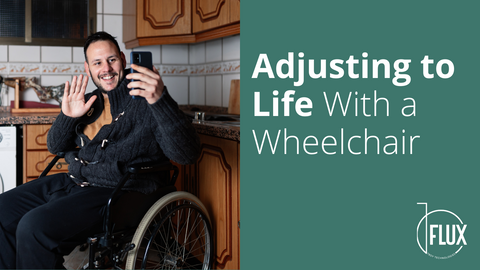If you have a family member, friend, or loved one in the process of moving to a wheelchair, the subject could be a bit sensitive. The decision to use a chair requires an individual to arrive at a certain level of acceptance of their own physical status and needs — and this can be a challenging journey for them, as well as a sensitive conversation to have together.
During the first few conversations with your client or loved one, remember three key steps: recognize, reaffirm, reassure.
It’s likely that your client or loved one has some hesitancy when it comes to committing to a wheelchair long-term — or even just in the short-term. The most important thing you can do as a caregiver is to recognize what is holding them back and understand the range of possible obstacles they’re working through in their minds.
Then, reaffirm the validity of the conflict they’re feeling. No one wants to be made to feel that their concerns are silly, least of all someone on the cusp of a big lifestyle transition. You, as a caregiver, are in a prime position to make someone feel heard and understood. A person can only begin to move past a significant emotion once they’ve allowed themselves to experience the full range of their feelings, and so this step in the process is crucial to the long-term satisfaction of the individual for whom you’re caring.
From there, you can provide the necessary information or guidance to debunk some of the big fears. Reassure your client or loved one of all the benefits of wheelchair use, and remind them of the end goal that you both share: making their life more manageable and comfortable.
When discussing a potential wheelchair transition with a client, friend, or family member, it may be helpful to draw attention to some of the more commonplace assistive devices and technologies we encounter every day. For example, your patient may be embarrassed by the need for a wheelchair to assist with mobility, but we don’t consider eyeglasses an embarrassing tool to help enhance people’s vision! Nor do we look twice when someone chooses the elevator over the stairs, nor when someone sees a therapist to help with mental health needs.
While you highlight the benefits that a wheelchair can bring to your patient or family member’s life, be sure to also acknowledge the pieces of their everyday experiences that won’t be thoroughly changed by it. Mention the hobbies they can maintain, like reading, knitting, spending time outside, or seeing friends and family. A transition to a wheelchair is full of change, and knowing that not every facet of life will be upended can be a huge comfort.
Browse our flexible, customizable wheelchairs now to give your family member, friend, or loved one an optimized wheelchair experience.




